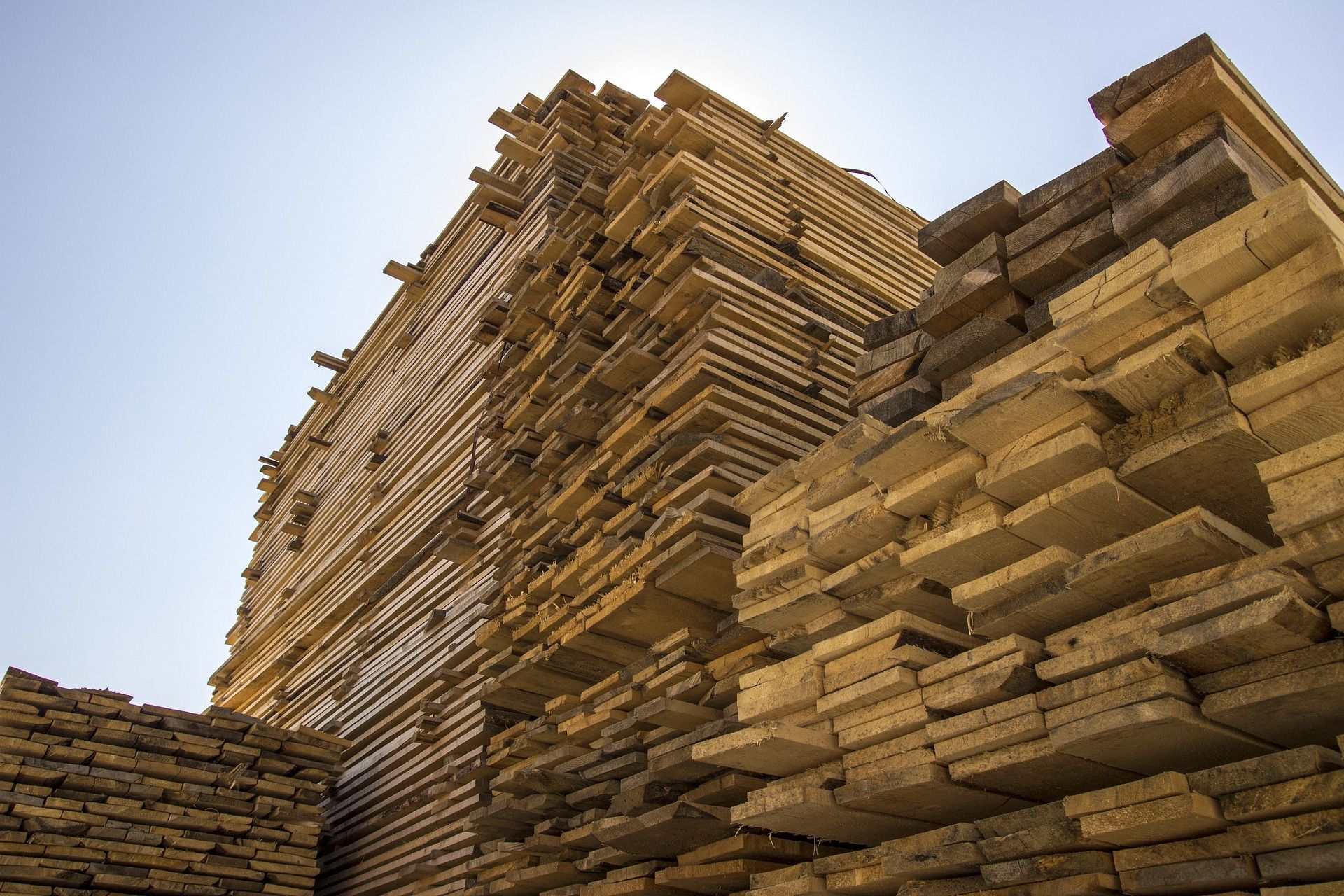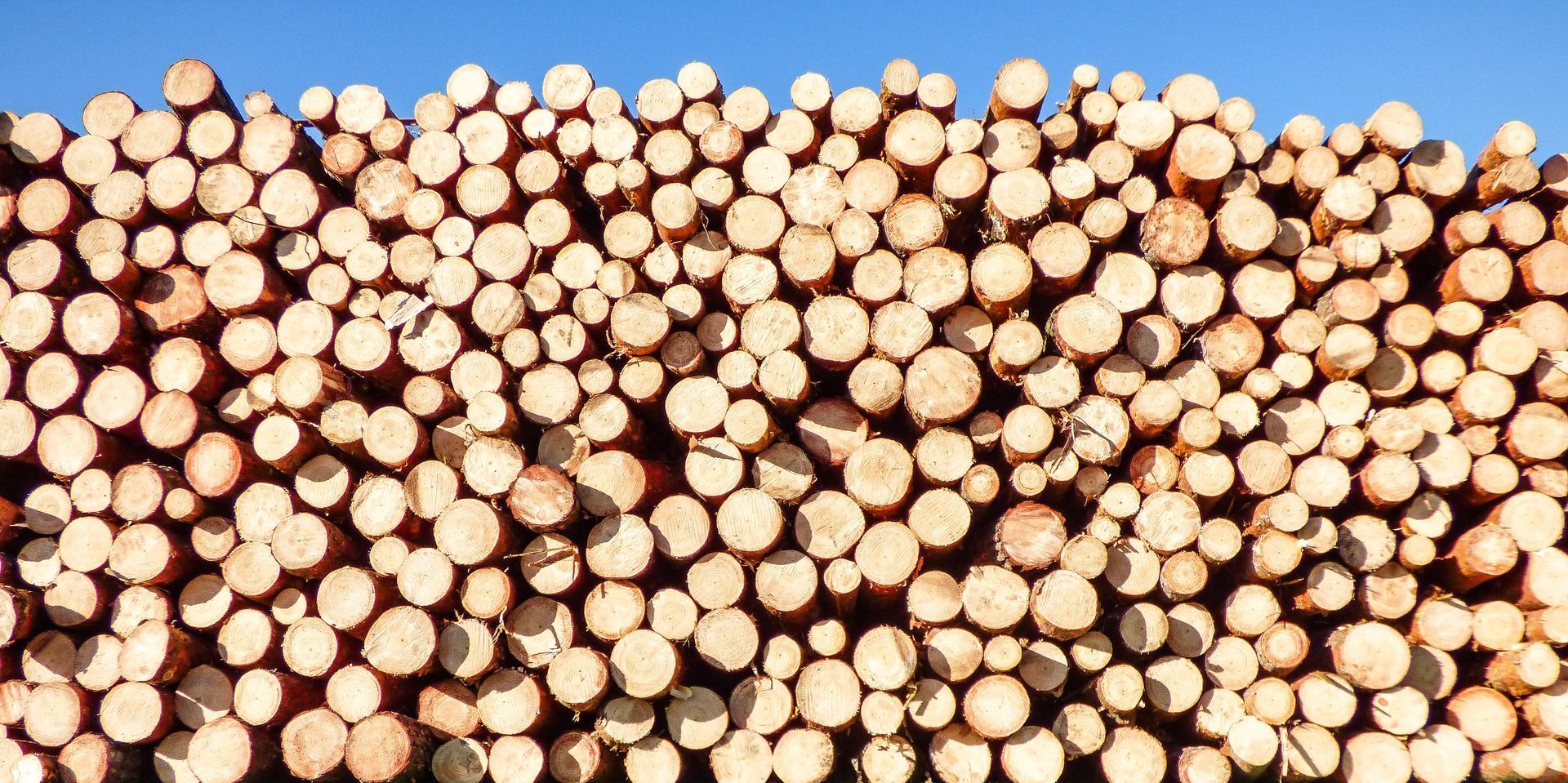Get In Touch Today - 07946 221169
The Importance Of Sustainable Wood Sourcing
These days, the topic of the environment is – rightly – on everyone's minds. We're seeing ever-increasing numbers of climate change-fuelled phenomena like droughts, heatwaves, storms and flooding.
As a professional carpenter, my job obviously involves working with all sorts of wood. Naturally, these materials come from the felling of trees and the following cutting and drying processes. But that doesn't mean it's necessarily bad for the environment! I firmly believe in sourcing as many materials as possible from sustainable sources (carefully managed forests). This has an undeniably positive impact on both the environment and the quality

Environmental Impacts:
Reclaimed Wood
Using newly planed and dried planks is often helpful, but I always use as much reclaimed wood as possible. Reclaimed wood comes from other objects that might otherwise be thrown out. I love that a large proportion of the wood I use has had a past life as part of something else. It defines 'reuse, reduce, recycle'.
In my opinion, reclaimed wood is the best possible way to develop sustainable woodworking practices. It sometimes isn't worthwhile for lower quality materials, but reusing more expensive hardwoods (mahogany, oak, cherry, etc.) has a significant positive impact on the environment.
Deforestation
The first thing anyone thinks about when I mention sourcing wood is deforestation. I understand – there's no way around that we need to chop trees down to get planks!
However, sustainable tree felling is vital to forest management when done properly. It prevents overcrowding, allowing smaller trees to take root and grow. We also see fewer pests and diseases when trees have more space between them. Purchasing timber from these forests – especially when they're local – can actually have a positive impact.
In Great Britain, the UK Forestry Standard regulates how we manage woodland and sustainable forests. The UK Timber Regulations (2013)Act also means anyone listing wood for sale must take due diligence to check its origins. It's illegal for anyone to place timber on the market if it comes from an unlawful source, whether or not that person harvested it.
Britain has a few restrictions on felling, although these are up to interpretation. For example, in semi-natural woodland, you shouldn't fell more than 10% of the area over a five-year period. Unless, that is, you have a good reason to. In the UK, a great emphasis is placed on personal responsibility and due diligence.
Some countries have a limit as to how much wood is counted as a sustainable harvest. For example, Canada is covered in vast forests (around 40% of its land!). In 2020, its maximum "sustainable wood supply" (the greatest volume allowed to be harvested) was 215.3 million m3. Data from the National Forestry Database shows that the country currently fells much less than that number (on a legal industrial scale, at least!).
While the development of lumber does require tree felling, there are sustainable ways to do this that avoid deforestation!
Travel Emissions
Wherever possible, I purchase my timber locally and ensure it's from a nearby (within the country) forest.
Although it might not sound like much, lumber is a naturally cumbersome material. Transporting it around the world requires colossal cargo ships and trucks.
The same can be said for processed and dried planks. Ordering from a nationwide chain might involve wood being shipped from a warehouse on the other side of the country. Instead, I (like many others) use local suppliers, minimising the environmental impact and shipping costs.
The less it has to move, the fewer carbon emissions it needs, and the better it is for the environment.

Wood Quality
The quality of the wood is also worth mentioning. Sustainable forests create better timber! Higher-quality wood comes from these well-managed forests for the following reasons:
- Trees are older
- Trees are healthier
- There are fewer diseases in the wood
- The local ecosystem is healthier
- Pests are less likely to affect these trees
As a result, sustainably managed forests yield much stronger, healthier wood. This gives your furniture, cabinets or other accessories a much nicer, more robust finish.
Keeping Away From 'Conflict Logging'
Of course, I always avoid purchasing timber from severely affected parts of the world. This might include the Amazon Rainforest and wood imported from conflict zones. (Logging is often used as an illegal way to make money in war zones.)
I mentioned this under the 'deforestation' heading, but all UK retailers must complete due diligence for purchases outside our regulated standards. This involves ensuring their products aren't arriving from these areas, where labour is often forced or illegal. By avoiding these imports, we're all doing our best to manage the world's forests and protect its human population simultaneously.
FSC (Forestry Stewardship Council) certifications on wood bring extra reassurance to the supply chain.
Feathers & Fern Sources Wood From Responsible Local Sources
At Feathers & Fern, I source my wood from just two trusted local suppliers. After researching and investigating, I trust it comes from well-managed sources and conflict-free zones. While some timber needs to be imported, this is kept to a minimum to reduce the environmental impact.
Unfortunately, there will always be corruption where there's a national system and industry. I do my best for everyone involved and do my due diligence to ensure all the wood is sustainably sourced.
Are you interested in how purchasing custom furniture or accessories is better for the environment than a mass-produced product? I'd be delighted to explain my processes and how I ensure little to nothing goes to waste.
For more information or to request a quote, please don't hesitate to reach out! I offer a friendly, commitment-free chat regarding what you're looking for and what I can do for you! I can be contacted via phone (07946 221169), email (jotham@feathersandfern.com), or the website's Contact page form. I look forward to hearing from you!
Get In Touch
If you've been dreaming of a new, unique table or chair or a decorative piece of art, I would love to hear from you.
Contact Us
Let's work together!
Feathers & Fern
123 Atherstone Rd, Measham, Swadlincote DE12 7EJ

Feathers & Fern
123 Atherstone Rd, Measham, Swadlincote DE12 7EJ
Tel: 07946 221169
Email: jotham@feathersandfern.com

